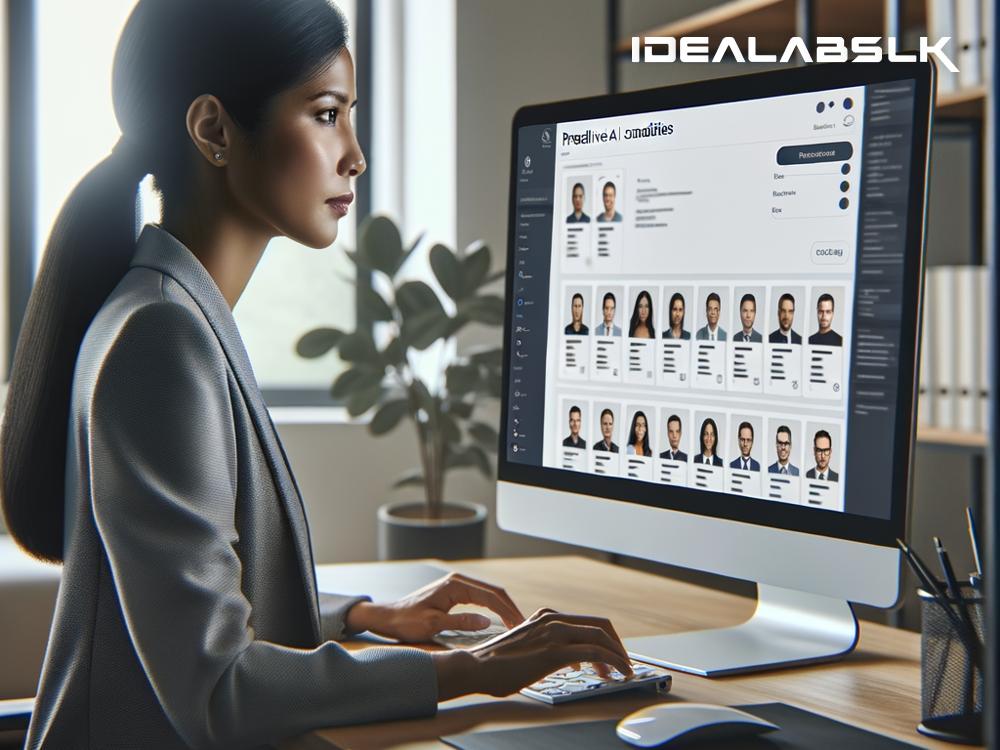Simplifying Candidate Screening: The Role of Predictive AI
The world of hiring is evolving at an unprecedented pace, largely due to advancements in technology. Among these, Predictive Artificial Intelligence (AI) is playing a game-changing role, particularly in candidate screening. But what does that exactly mean, and how does it work? Let's break it down into simpler terms.
Understanding Predictive AI in a Nutshell
Predictive AI, in the context of recruitment, refers to intelligent systems that use data and algorithms to forecast outcomes related to job applicants. Imagine having a crystal ball that could tell you which candidates are likely to excel in a role, stay with your company longer, or mesh well with your team dynamics. Predictive AI aims to be that crystal ball by analyzing heaps of data and identifying patterns or correlations that might not be visible to the human eye.
The Mechanics: How Does Predictive AI Screen Candidates?
1. Data Collection and Analysis
The first step involves gathering data. This data can come from various sources, including resumes, social media profiles, previous job performances, and even candidates' interactions during the screening process. Predictive AI tools analyze this information, often focusing on data points that have historically correlated with job success.
2. Learning from Patterns
AI operates on the principle of learning from existing patterns. By examining the characteristics of past successful hires, the AI model can identify which traits, experiences, or skills predict success in a particular role. It's not just about scanning for specific keywords but understanding deeper connections and correlations.
3. Predictive Modeling
With the insights gained, AI constructs a predictive model. This model forecasts outcomes - for instance, how likely a candidate is to achieve high performance or fit into the company culture. It's akin to making informed predictions based on vast amounts of data that would be humanly impossible to analyze manually in a reasonable timeframe.
4. Continuous Learning and Adaptation
One of the most compelling aspects of Predictive AI is its ability to learn and adapt over time. As more hiring decisions are made and more performance data is collected, the AI refines its model to make even more accurate predictions. It's a process of continuous improvement.
The Impact of Predictive AI on Candidate Screening
The introduction of Predictive AI into the world of recruitment brings several transformative benefits:
Increased Efficiency
Screening candidates is notoriously time-consuming. By automating the preliminary assessment phase, organizations can significantly cut down on the time and resources spent reviewing applications. Predictive AI allows hiring teams to focus their efforts on engaging with candidates who are most likely to be a good fit.
Enhanced Decision-Making
Human bias, whether conscious or unconscious, can influence decision-making in recruitment. Predictive AI offers a more objective lens by basing predictions on data. While it's not entirely free from bias (since AI models learn from historical data, which might contain inherent biases), efforts are continuously made to identify and mitigate these biases in AI systems.
Better Candidate Experience
Candidates often express frustration with long, opaque selection processes. Predictive AI can streamline candidate screening, leading to quicker responses and more transparent communication. Plus, by focusing on candidates with the highest potential, organizations can invest more in personalized engagement, improving the overall candidate experience.
Predictive Fits Beyond Skills
Going beyond hard skills and experience, Predictive AI can also evaluate potential cultural fit and team dynamics. This holistic approach helps in building more cohesive teams, thereby enhancing productivity and job satisfaction.
Looking Ahead
Predictive AI in candidate screening represents a leap towards more efficient, equitable, and thoughtful recruitment practices. However, it's essential to remember that AI is a tool to aid human decision-makers, not replace them. The human touch in interpreting data, understanding team needs, and making the final hiring decision remains irreplaceable.
As we move forward, the integration of Predictive AI in recruitment processes is likely to become more refined and widespread. For organizations, staying abreast of these technologies and understanding how to leverage them effectively will be key to attracting and retaining top talent in increasingly competitive landscapes.
In conclusion, Predictive AI in candidate screening is revolutionizing how organizations approach hiring, offering a smarter, more data-driven path to uncovering the best talent. As with any technology, its success will depend on thoughtful implementation and continuous evaluation to harness its full potential while navigating its challenges.

